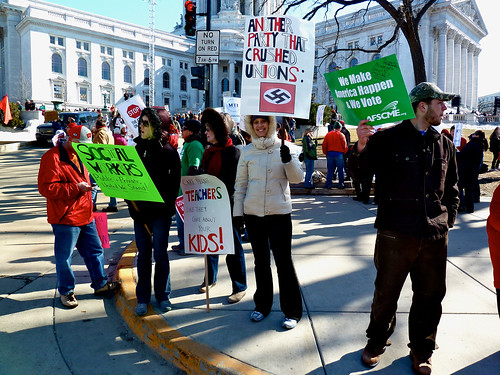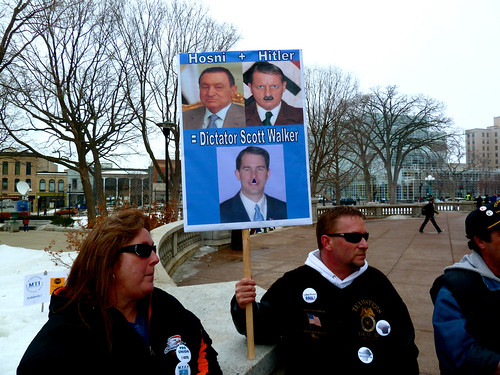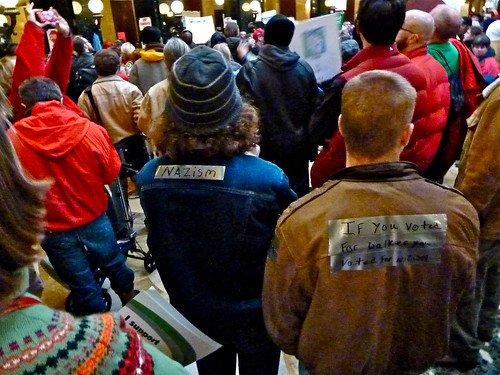Archive for March, 2011
The Long Recall
Posted by Joshua Sharf in History, PPC on March 16th, 2011
I discovered The Long Recall blog over at the American Interest site a couple of months ago, but only now am I getting around to posting on it. The folks there have decided to do a real-time, day-by-day blog of the Civil War, on its ongoing 150th Anniversary. It’s a brilliant idea, and so far, they’re pulling off what must be a great deal of unpaid work quite beautifully.
The effort seems to be led by Walter Russell Mead, and I’ll quote from his intro to the blog, but it’s worth reading the whole thing:
We will use a modern form to present the daily news: our Civil War aggregator that combines a short daily summary of the news along with links to articles that a well-informed Civil War-era reader would have wanted to read. Our goal is to allow readers today to get a feel for what it was like to experience the conflict in real time, to hear the many voices trying to make sense of the conflict, and to sift through sometimes confused and misleading news accounts to try to discern what was actually taking place.
…
The Long Recall will do its best to help 2010 readers understand the economic dimension of the conflict. At times this will involve us in something more active than simply linking to Civil War era news sources; we will provide commentary that helps the readers of today understand what yesterday’s news meant to intelligent readers of the day.
…
In The Long Recall, we will carry foreign news as it became available to American readers, not the day it actually happened. At times of crisis, as during the Trent Affair late in 1861, this uncertainty about foreign events was a major factor in American politics and policy. Because the US economy and financial markets were so dependent on London at this time, the uncertainty about foreign developments was also an important factor in the economic news….
Finally, a word on language and ‘political correctness.’ The United States has always been and remains a prudish society with strict limits about the kind of language that is allowed — and about the subjects that may be discussed. In the Civil War era, Americans were very strict about sexual matters — but when it came to race, they were extremely permissive. …words that could never be used today in polite discourse were routinely used in those days to describe different racial groups. Worse, racial humor and stereotypes were deeply embedded in the culture. Politicians and political writers frequently resorted to anecdotes and humor that would justifiably end careers today to score points with public audiences.
At The Long Recall, we have made the decision to link to Civil War era material without censoring or toning down racial language, images and ideas that modern readers (including, we must say, ourselves) find offensive. The use of such language and the prevalence of such ideas is too central to American life and culture at the time — and too vitally involved with attitudes toward the Civil War — to be edited away or softened down.
While I was born after April 1965, when the Centennial ended, I do remember this Peanuts cartoon from a book I had as a kid:

For some reason, the Sesquicentennial hasn’t attracted the same amount of publicity as the Centennial apparently did, when even kids reading comic strips could be expected to know about it, and possibly even recognize some of the songs. It’s probably a combination of a decline in cultural literacy, and a harrowing sensitivity about race. Or maybe the Civil War was just unlucky enough to have its 150th Anniversary start in a year when the Founders were hogging all the attention.
One has to admire the audacity of the authors to undertake such an effort, and the courage of their approach.
A Wind-Assisted “Win”
Posted by Joshua Sharf in Constitution, History, Labor, National Politics, PPC on March 15th, 2011
In track and field, when a runner has the wind at his back, and records he sets don’t count. Of course, in track, the win is still fair, because all the runners run under the same conditions. With the press, it’s always uphill and against the wind for Republicans and Tea Parties, downhill and wind-assisted for Democrats and unions.
In a previous post, I put up a little retrospective of some of the more troubling behavior by Wisconsin public servants, aided and abetted by college students, Organizing for America, and the DNC. I doubt whether even Mike Littwin would be able to claim this as a “win” if most of the country had seen these events as they were happening. The national media, which goes out of its way, if necessary, to make up stuff about Tea Partiers, was rigorously careful not to expose the American public to these scenes.
What are perceived as heavy-handed tactics often have a way of backfiring. (In Pennsylvania during the Constitutional ratification convention, for instance, dissenting members of the convention fled the scene to deny the convention a quorum, and two of them had to be hauled back bodily to Independence Hall to get the 2/3 necessary for business. This, along with the refusal of the press to publish speeches critical of the Constitution and the refusal of the convention’s official journal to record all the speeches, forced the Federalists to tread much more carefully in succeeding states, particularly Massachusetts, New York, and Virginia.)
But they don’t usually backfire when the targets are unsympathetic louts.
Just to pick on Mike a little, the last lines in his column suggest that the DC Democrats might find the inspiration and spine to make bold entitlement reform proposals from the events in Wisconsin. This makes no sense. In Wisconsin, the Democrats were defending the insupportable and unsustainable status quo. Failing to deal with entitlements, as the President has failed to do, would be more in keeping with that strategy.
Wisconsin – A Retrospective
Posted by Joshua Sharf in Media Bias on March 15th, 2011
While it remains to be seen if the public sector unions in Wisconsin can (re)build a political movement based on coercion and extortion, it’s worth remembering that they’d have no chance of doing so without help from their friend in the working press. Let’s a take a little trip down memory lane, so close it almost seems like yesterday:
Another Party Crushed the Unions

Attack FreedomWorks’ Tabitha Hale
Protesters re-take the Wisconsin Capitol
Wisconsin GOP Senator Glenn Grothman chased, trapped by hecklers, saved by Dem. Rep. Brett Hulsey
Wisconsin Union Wisconsin Republican senators leave through secret tunnel after march 9th vote
Chances are, unless you were reading Ann Alhouse’s blog or Instapundit you didn’t know about much of this. That, combined with the national media blackout on the death threats against Wisconsin Republicans, and the protestors who’ve taken to taking down license plate numbers of their political opponents, constitutes the sort of propaganda that money literally can’t buy.
The Denver City Council Wants Your Money
Posted by Joshua Sharf in Colorado Politics, Denver, Denver Mayor, PPC, Taxes on March 15th, 2011
Well, that shouldn’t be any surprise to anyone living in Denver over the last few years. But usually they have the decency to pretend that it’s for someone else. This time, the Denver City Council wants your money for themselves and the office some of them hope to occupy come May.
At last night’s City Council meeting, they voted themselves (10-3, the Denver Post article neglects to mention who the three were) a 6.6% pay raise, starting two years from now:
Denver is the only large city in Colorado that pays its council members a living wage — $78,173 a year, plus about $30,000 in benefits.
The raise would give the council members an annual salary of $83,332 by July 2014. The council president makes about $10,000 more.
The mayor’s salary will grow to $155,211 from its current $145,601. The salaries of both the clerk and recorder and the auditor would be $134,235, up from their current $125,924.
Right now, the seasonally unadjusted unemployment rate for Denver is 10.9%; a seasonal adjustment might bring that down to 10.4% or so. This is the highest that it’s been going all the way back to 1994, when the CDLE numbers begin.
In addition, Denver is looking at a $100,000,000 budget gap this year, slated to get worse over the next decade. To City Council chairman Chris Nevitt, this may only be “symbolic,” but it’s pretty clear what it’s symbolic of.







